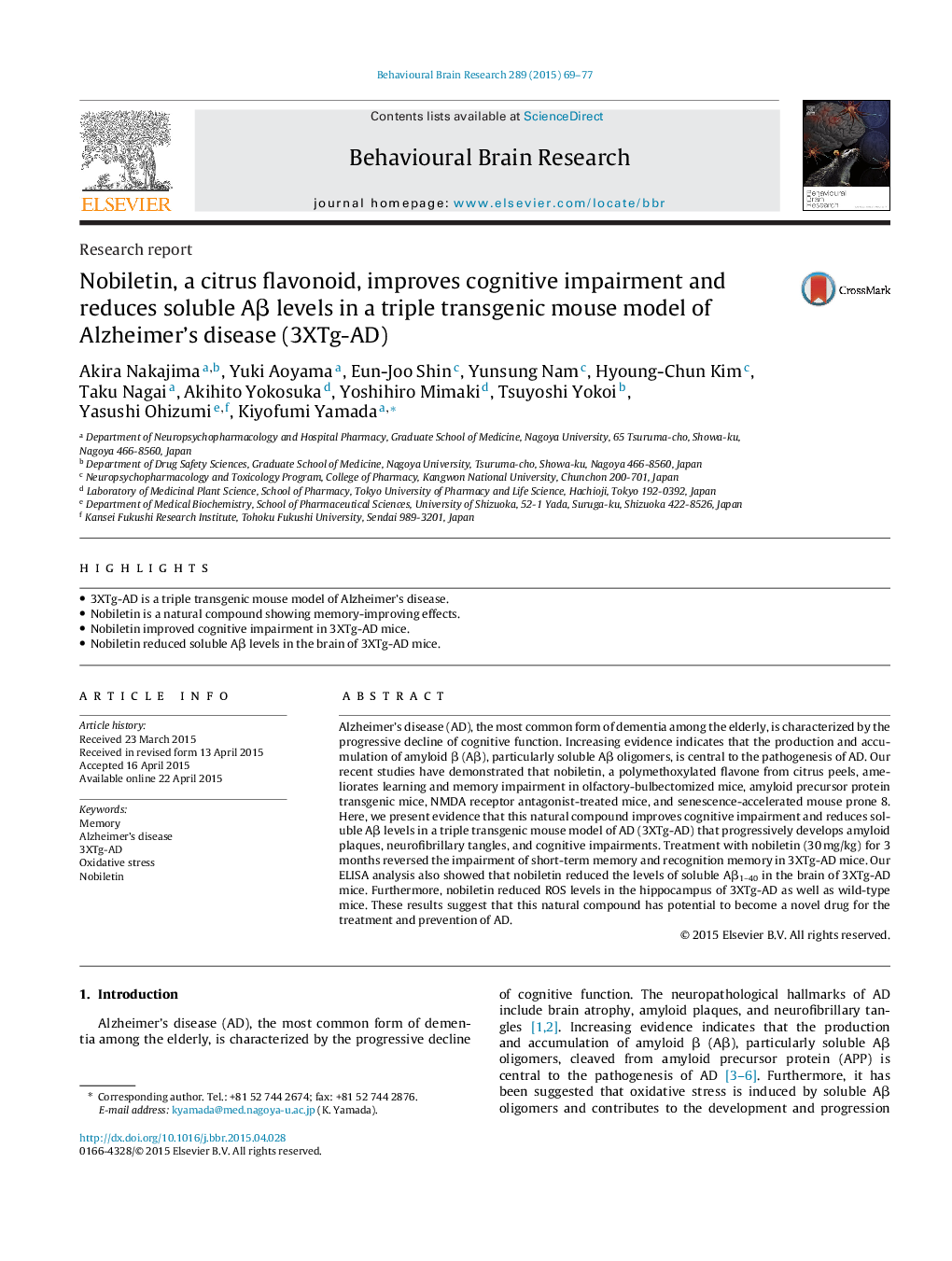| کد مقاله | کد نشریه | سال انتشار | مقاله انگلیسی | نسخه تمام متن |
|---|---|---|---|---|
| 6256728 | 1612943 | 2015 | 9 صفحه PDF | دانلود رایگان |

- 3XTg-AD is a triple transgenic mouse model of Alzheimer's disease.
- Nobiletin is a natural compound showing memory-improving effects.
- Nobiletin improved cognitive impairment in 3XTg-AD mice.
- Nobiletin reduced soluble Aβ levels in the brain of 3XTg-AD mice.
Alzheimer's disease (AD), the most common form of dementia among the elderly, is characterized by the progressive decline of cognitive function. Increasing evidence indicates that the production and accumulation of amyloid β (Aβ), particularly soluble Aβ oligomers, is central to the pathogenesis of AD. Our recent studies have demonstrated that nobiletin, a polymethoxylated flavone from citrus peels, ameliorates learning and memory impairment in olfactory-bulbectomized mice, amyloid precursor protein transgenic mice, NMDA receptor antagonist-treated mice, and senescence-accelerated mouse prone 8. Here, we present evidence that this natural compound improves cognitive impairment and reduces soluble Aβ levels in a triple transgenic mouse model of AD (3XTg-AD) that progressively develops amyloid plaques, neurofibrillary tangles, and cognitive impairments. Treatment with nobiletin (30 mg/kg) for 3 months reversed the impairment of short-term memory and recognition memory in 3XTg-AD mice. Our ELISA analysis also showed that nobiletin reduced the levels of soluble Aβ1-40 in the brain of 3XTg-AD mice. Furthermore, nobiletin reduced ROS levels in the hippocampus of 3XTg-AD as well as wild-type mice. These results suggest that this natural compound has potential to become a novel drug for the treatment and prevention of AD.
Journal: Behavioural Brain Research - Volume 289, 1 August 2015, Pages 69-77